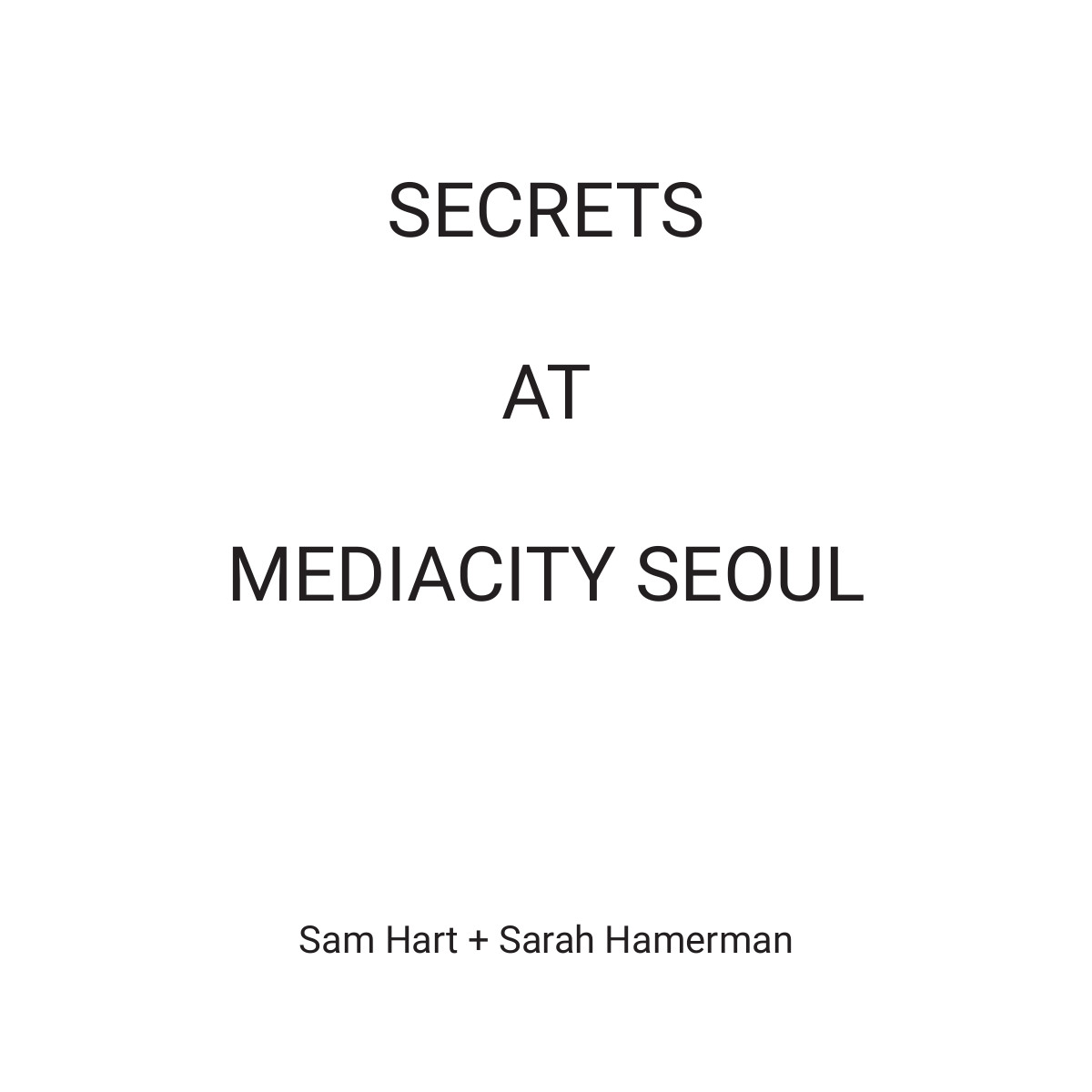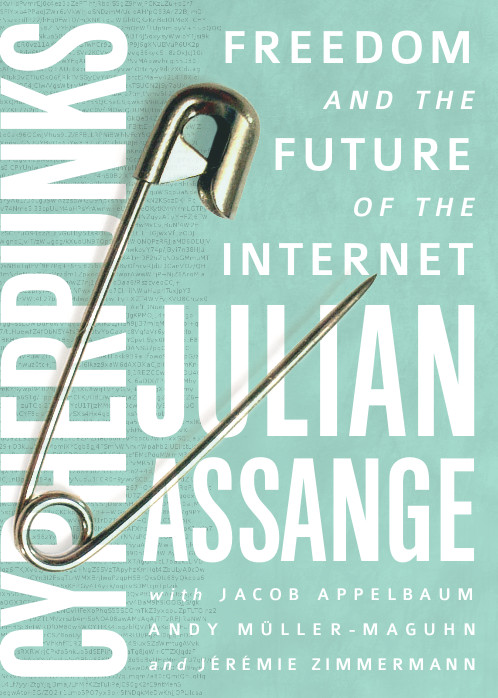Sam Hart, Sarah Hamerman: Secrets at Mediacity Seoul (2018)
Filed under artist publishing | Tags: · encryption, information, secrecy

“Secrets at Mediacity Seoul traces a genealogy of artworks that examine the secret as an information structure, from the conceptual artworks of the 1960s to works that consider secrecy and encryption in today’s social and technological context. While conceptual art’s logic of dematerialization often undergirded an aesthetic of ‘pure’ information, it led artists from Douglas Huebler and Robert Barry to Mel Ramsden and Sophie Calle to investigate how secrets test the limits of what can be known and seen. But the role of secrets is political as well as epistemological. Works by artists such as Trevor Paglen, Jill Magid, Paolo Cirio and Hayal Pozanti consider how secrets organize the distribution of power, from algorithmic “black boxes” and state classification schemes, to new digital infrastructures built upon cryptographic primitives. Finally, Secrets at Mediacity Seoul looks beyond the catalogue’s documentary role, imagining how it might conceal or encrypt the absent artworks. The Secrets at Mediacity Seoul forms part of the Secrets research and curatorial project (2017-2018), a collaboration between Sarah Hamerman and Sam Hart. ”
Produced for Monoskop’s Exhibition Library in the 2018 Seoul Mediacity Biennale, 6 September–18 November 2018 at the Seoul Museum of Art.
Self-published in collaboration with Monoskop, Amsterdam, August 2018
[20] pages
Julian Assange, et al.: Cypherpunks: Freedom and the Future of the Internet (2012)
Filed under book | Tags: · activism, anonymity, censorship, code, cryptography, cypherpunk, encryption, free software, hacking, internet, internet activism, politics, privacy, software, surveillance, transparency, wikileaks

Cypherpunks are activists who advocate the widespread use of strong cryptography (writing in code) as a route to progressive change. Julian Assange, the editor-in-chief of and visionary behind WikiLeaks, has been a leading voice in the cypherpunk movement since its inception in the 1980s.
Now, in what is sure to be a wave-making new book, Assange brings together a small group of cutting-edge thinkers and activists from the front line of the battle for cyber-space to discuss whether electronic communications will emancipate or enslave us. Among the topics addressed are: Do Facebook and Google constitute “the greatest surveillance machine that ever existed,” perpetually tracking our location, our contacts and our lives? Far from being victims of that surveillance, are most of us willing collaborators? Are there legitimate forms of surveillance, for instance in relation to the “Four Horsemen of the Infopocalypse” (money laundering, drugs, terrorism and pornography)? And do we have the ability, through conscious action and technological savvy, to resist this tide and secure a world where freedom is something which the Internet helps bring about?
The harassment of WikiLeaks and other Internet activists, together with attempts to introduce anti-file sharing legislation such as SOPA and ACTA, indicate that the politics of the Internet have reached a crossroads. In one direction lies a future that guarantees, in the watchwords of the cypherpunks, “privacy for the weak and transparency for the powerful”; in the other lies an Internet that allows government and large corporations to discover ever more about internet users while hiding their own activities. Assange and his co-discussants unpick the complex issues surrounding this crucial choice with clarity and engaging enthusiasm.
With Jacob Appelbaum, Andy Müller-Maguhn, and Jérémie Zimmermann
Publisher OR Books, New York/London, November 2012
ISBN 9781939293008
192 pages
Interview with Assange where he also speaks about the book (video, DemocracyNow!, 29 November 2012)
Commentary (The Guardian)
Review (Cryptome.org)
PDF (PDF)
PDF (EPUB)
PDF (MOBI)
PDF (torrent, all 3 formats)
Video of Assange’s TV show The World Tomorrow interview the book is based on, Part 1, Part 2 (Youtube.com)
The CryptoParty Handbook (2012)
Filed under handbook, sprint book | Tags: · anonymity, cryptography, email, encryption, floss, hacking, internet, open source, privacy, security, software, surveillance, technology, web

This handbook is designed to help those with no prior experience to protect their basic human right to Privacy in networked, digital domains. By covering a broad array of topics and use contexts it is written to help anyone wishing to understand and then quickly mitigate many kinds of vulnerability using free, open-source tools. Most importantly however this handbook is intended as a reference for use during Crypto Parties.
Facilitated by Adam Hyde
Core Team: Marta Peirano, Asher Wolf, Julian Oliver, Danja Vasiliev, Malte Dik, Brendan Howell, Jan Gerber, Brian Newbold,
Assisted by Teresa Dillon, AT, Carola Hesse, Chris Pinchen, ‘LiamO’, ‘l3lackEyedAngels’, ‘Story89’, Travis Tueffel
Creative Commons BY-SA 4.0 Unported license
386+ pages
via Julian Oliver
discussion and criticism (Liberationtech list)
Download the latest edition
Contribute (via GitHub)
Contribute (via Booki)

